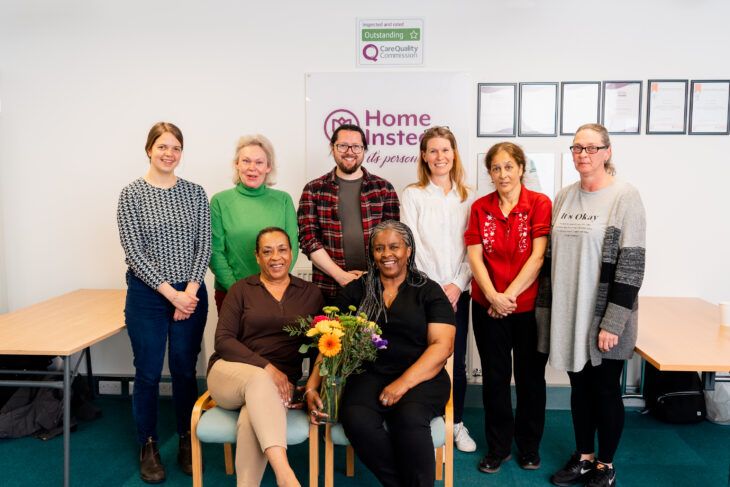Continuing to explore the role of music in dementia care with Home Instead Wandsworth
United Kingdom
- Dementia
- Caregivers
- Elderly
- Activities
- Inspiration

We were eager to hear about their sharing of music with their clients over the six weeks since we first met, to celebrate their successes as well as the challenges they’d come across, to learn from their experiences and share ideas to keep music embedded into their care practice.
For some of our caregivers and particular clients, music was already an instinctive and important part of their relationship. For those clients with a predisposition for singing and music, going along to social music groups or singing songs together during a care visit was a natural way for them to share activities together.
But for a client who isn’t so forthcoming about their interest in music or has perhaps lost language skills, how might you start to introduce music sensitively as a connection point?
Together we discussed the importance of finding the right time to bring music in and when you might need to trust your instinct and recognise when to stop. We considered how the caregivers might apply their experience of encouraging clients to follow through with activities when they might initially be reluctant, bearing in mind that an unsatisfactory attempt to bring music into the care of a client one day doesn’t necessarily mean they won’t respond positively on a different occasion.
It was inspiring to hear the caregivers reflecting on the wide range of ways they had used music with their clients since our first workshop together and how they hope to build on this going forward. We heard how one caregiver had been able to provide relief to a client in a distressing situation by singing with them in Italian, their shared mother-tongue. Another caregiver came up with a way to playfully engage her client in a singing game whilst out shopping together, responding with a related song for each word prompt her client offered her. Singing to relieve clients’ anxiety while carrying out personal care tasks was another way our caregivers had found music to be effective, while indulging in some joint “air piano” along to recorded music had entertained another caregiver and client.
I won’t worry about how I sound now! I’m happy to sing along with clients.
Workshop participant
And one of the participating care managers was able to find an instant point of connection at a recent new client consultation via their extensive record collection, which became a natural discussion point and a cue for them to incorporate music into their care plan.
If a new client asked me about using music in my consultation, I’d be confident in talking about that now.
Workshop participant
One caregiver noted how knowledge of a client’s musical preferences could contribute to continuity of client care; being able to share insight about how, when and what music is meaningful to a particular client could be shared with the wider care team and be a valuable way to maintain consistency across the different caring relationships.
We were delighted to hear that the majority of the caregivers felt ‘very inspired’ to continue looking for opportunities to use music in the care they provide to their clients living with dementia.
And finally, when we asked them for their top tips for home carers thinking about using music with a client living with dementia, this is what they told us:
Give it time and get to know your client so that it feels the right time naturally.
Remember to think about how much music means to you and so what it could mean to someone else.
Think about timing – don’t force it.
Be patient and take time to think about how their ‘dementia mind’ affects them.
Give it a go! If you don’t try it, you won’t know.
Are you a caregiver working with people living with dementia? Could you be inspired to explore the role of music to enhance your person-centred care? Get in touch to find out more or to request training – we would love to hear from you!
Related projects
-
Tailored training: Home Instead Wandsworth (London) 2023
United Kingdom
- Caregivers
- Dementia
- Elderly
